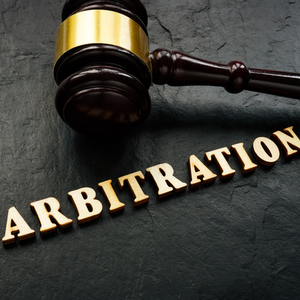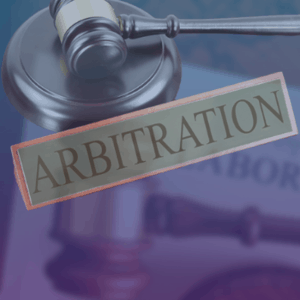Dispute Resolution

OVERVIEW
Acuity Law specializes in dispute resolution practice, providing expert advice and representation in civil, criminal, and arbitration matters. The firm is well equipped to provide end-to-end solutions to its clients and to assist them in protecting their interests in disputes against private parties as well as government agencies and regulators.
Acuity Law adopts a multi-disciplinary approach in dealing with disputes faced by its clients to provide solutions which are legally and commercially viable. From engaging with the client at a pre-dispute stage and assisting the client in adopting an appropriate strategy to representing the client before courts and tribunals, the Firm is well-adept at assisting clients throughout the life-cycle of a dispute.
ROLE
Civil Matters
Acuity Law engages in:
- advising on pre-dispute strategy arising out of contractual disputes, statutory provisions etc.
- formulating litigation strategies based on the nature of dispute and choice of dispute forum keeping in view conflict of laws
- drafting all kinds of pleadings, in various dispute resolution forums
- representing clients in various forums including the Hon’ble Supreme Court of India, various High Courts in India, various tribunals and quasi-judicial bodies such as the Telecom Disputes Settlement and Appellate Tribunal, the National Consumer Disputes Redressal Commission, the National Green Tribunal, the Employees Provident Fund Appellate Tribunal, Appellate Tribunal for Foreign Exchange, Competition Appellate Tribunal, the Competition Commission of India, the Enforcement Directorate, National Company Law Tribunal and National Company Law Appellate Tribunal, Debt Recovery Tribunal, Debt Recovery Appellate Tribunal, Telecom Regulatory Authority of India
Criminal Matters
Acuity Law assist clients in representing their cases in sessions courts, High Courts and the Hon’ble Supreme Court of India, with respect to criminal matters.
Arbitration
At Acuity Law, we strive to deliver satisfactory outcomes for our clients through assisting them in arbitration proceedings. Our expertise in this area is derived from our in-depth knowledge of substantive and procedural arbitration law and our vast experience in cross-border transactions. We understand our clients’ needs and are therefore able to bring complex and sophisticated arbitration matters to a satisfactory closure.
Arbitration
Arbitration, a widely preferred mechanism of alternate dispute resolution is by and large used to adjudicate disputes of commercial nature. In recent times, arbitration has gained significant importance for settling disputes between parties due to its relatively speedy and flexible framework.
Here we deal with the fundamental principles of arbitration, its related procedure and relevant law in India.
The Commercial Courts Act
The Commercial Courts Act, 2015 was enacted to establish a distinct procedural framework for dealing with commercial disputes above a certain specific value. The main objective of the Act is to enable a speedy redressal of commercial disputes in India. Here we deal with the constitution of commercial courts and the procedure for dealing with commercial disputes in India.
Enforcement of Foreign Decree
Obtaining a decree in a legal dispute is a battle half won. However, decree holders intending to execute a foreign decree in India ought to be mindful not only of the laws of the country where the cause arose but also of the law governing enforcement of the decree in India. A pre-enforcement assessment with a comprehensive enforcement strategy would help parties enforce foreign decrees in a time and cost efficient manner. This primer deals with the fundamentals of enforcing foreign decree /judgment in India.
Shareholder's Protection
Shareholders, though not in direct control of a company, are the real owners of the company. The investments made by shareholders in companies entitle them to certain rights. This primer gives a broad overview of the various protections guaranteed to shareholders under India’s corporate legislation.
The Singapore International Arbitration Centre (SIAC)
SIAC is one of the key arbitration institutions in the field of international arbitration. Being an arbitral institution, the arbitrations held under the aegis of SIAC are governed by the SIAC Rules, 2016. In this primer, we have dealt with some of the points that need to be kept in mind while dealing with a SIAC arbitration.
‘Damages’ under the Indian Contract Act
Damages are the monetary amount payable by the defaulting party upon breach of a contract. In this primer, we throw light of the concept of ‘damages’ under the Indian Contract Act.
FAQs on Law of Evidence
In India, the law relating to evidence is provided in the Indian Evidence Act, 1872. In this primer, we have covered some important concepts related to types of evidence, manner of taking evidence and its relevancy as provided in the Evidence Act.
FAQs on Writs in India
An action or the inaction of any public authority may adversely affect the rights of the people. The most effective remedy for the protection of people’s rights and controlling administrative actions is efficient judicial control. In this primer, we undertake a discussion on writs, a fundamental tool for controlling administrative actions and protecting the rights of the people.
FAQs on Summary Suits in India
In India, summary suit is a procedure wherein courts pass judgments without necessarily hearing the defense of the accused party. It is a unique procedure through which aggrieved parties can recover their debts expeditiously. At first blush, it sounds too good to be true, but summary suits have their own procedures and distinct requirements. In this primer, we discuss the nitty-gritty for institution of summary suits and the procedure followed by courts.
The Mediation Act, 2023 (Act)
The Mediation Act, 2023 was notified by the Government of India on 15 September 2023. The Act codifies the laws pertaining to mediation and strives to promote mediation (especially institutional mediation) as a suitable alternative to other dispute resolution mechanisms. In this FAQ, we have set out some key features of the Act.






































